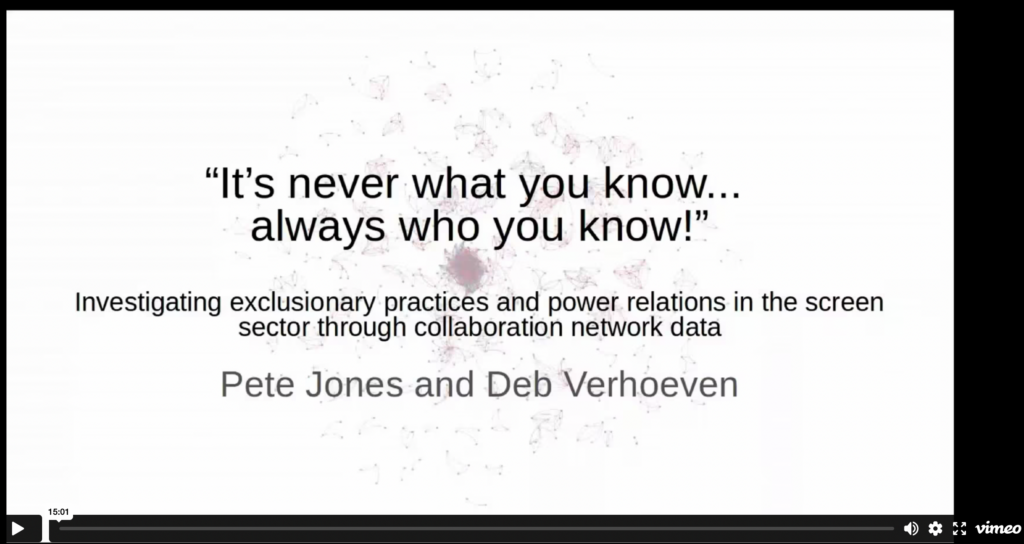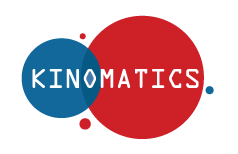Kinomatics goes to CEDIA

Pete Jones presented a summary of some of our most recent work at the CEDIA conference on Inequalities and Diversity in the Arts and Creative Industries hosted by Birmingham City University on January 16, 2025.
But you didn’t need to be there! You can watch the presentation on Vimeo:
 Click this image to access a video of the presentation
Click this image to access a video of the presentation
Title: “It’s never what you know… always who you know!” Investigating exclusionary practices and power relations in the screen sector through collaboration network data
Authors: Pete Jones and Deb Verhoeven
Abstract:
The project-based and precarious nature of work in the screen industries means that personal networks and reputation-based dynamics are key drivers of employment and organisation. In an industry that moves fast and where financial imperatives create a risk-averse atmosphere, trust and familiarity are key drivers for project recruitment. In addition, creative workers repeatedly report that they find the industry to be a “boys club”, in which employment based on familiarity and cultural matching has the effect of ossifying existing power structures and few newcomers are able to get a foothold.
Recent scholarship has begun to explore the link between the organisational salience of networks and the grossly inequitable composition of the workforce in these industries. Qualitative studies have flagged how it is precisely these collaboration networks that help to cement the dominance of some historically privileged groups (i.e. white men), to the exclusion of others. This literature, however, contains few examples of exploring these questions empirically with network data. The quantitative literature exploring screen industry collaborations, on the other hand, has been primarily concerned with what makes a creative team successful or innovative, rather than with inequities in the sector.
In this presentation we report on several recent projects that we have been working on that empirically explore how different global screen industries (Germany, UK, Canada, Australia) are driven by relational mechanisms such as familiarity (the tendency to work with people you have worked with before) and homophily (the tendency for people that share characteristics to work together). We focus in particular on how our research contributes to ongoing debates about gender equity policy in the screen sector, and reflect on what network analysis can add to understandings of why these industries are so obstinately inequitable.
